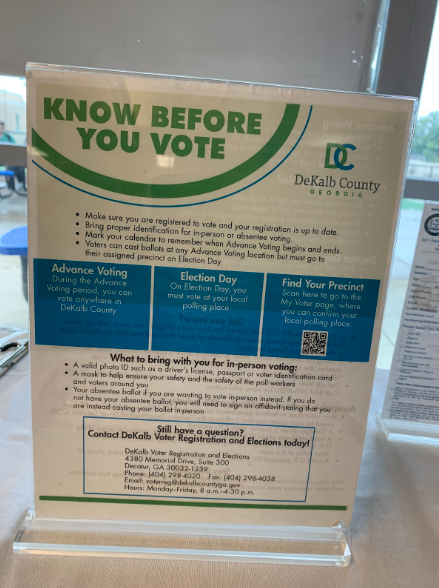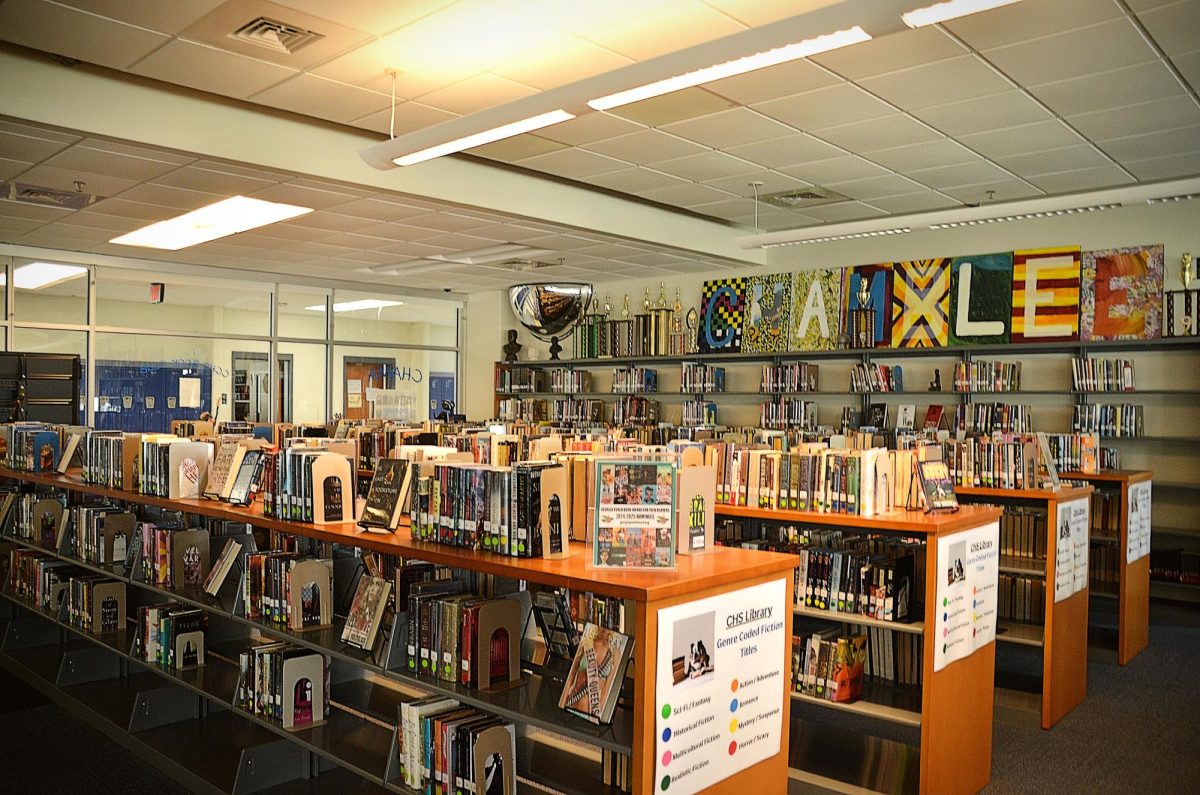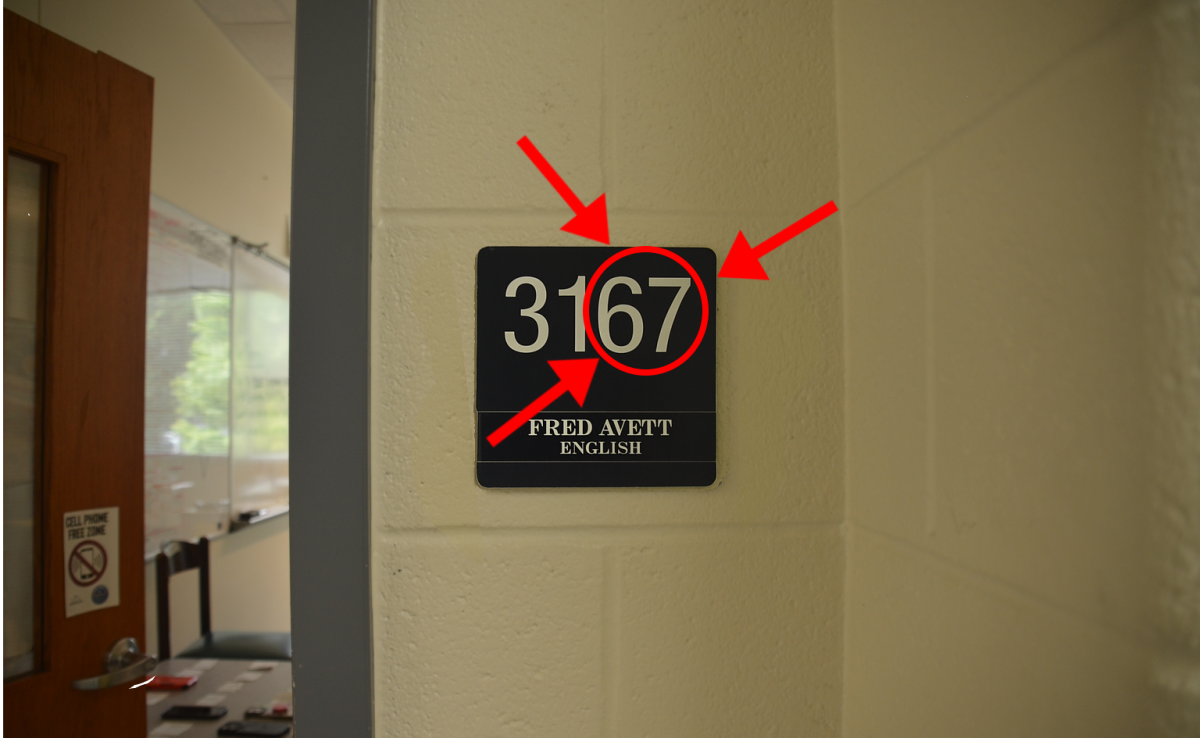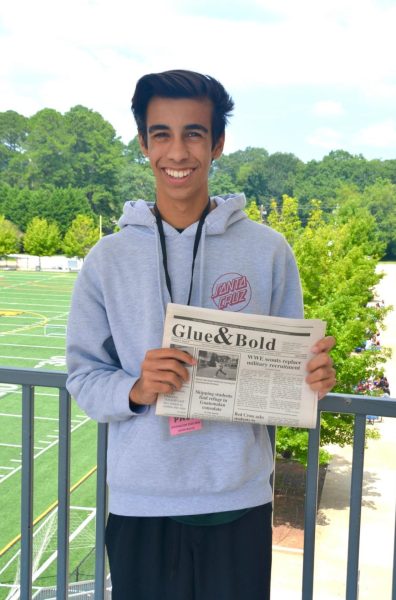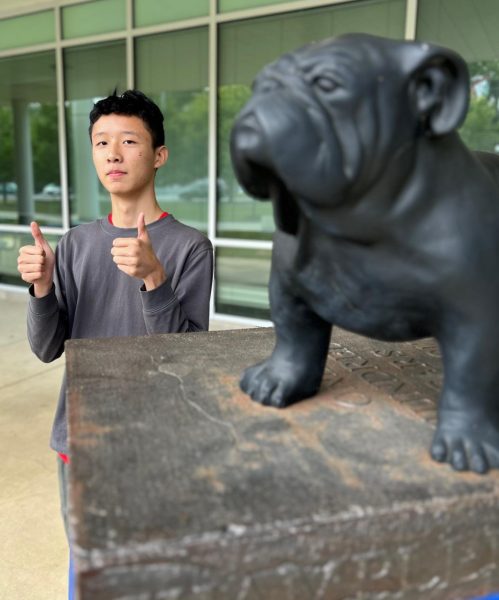Eight million teens across America are eligible to vote, meaning that high schoolers alone could have decided the outcome of the 2020 election. The upcoming election in November between Donald Trump and Kamala Harris is predicted to be even closer than the 2020 election, meaning high schoolers have a very big say in the outcome of the election. Here at Chamblee, students are very engaged with the voting process, and many seniors are preparing to cast their votes for the first time.
“I always said I was going to vote, ever since I was young enough to understand what it is,” said Wilma Flinstone (’25), an anonymous senior, “I feel like there are a lot of bad things happening in the world and in our country, and I want to do my part and try to prevent that.”
Flinstone is planning on casting her vote for Democrat Kamala Harris in November.
“I don’t agree with all of her policies,” said Flinstone, “but I think that she seems very competent, and she’s willing to listen to people who don’t necessarily agree with her. She’s willing to work together with different people.”
Despite believing that Harris is an overall good fit for president, Flinstone still has her doubts about some of Harris’ policies.
“I don’t think Kamala Harris has done enough for Palestine, but that’s probably the biggest difference between Harris and I. I think that if I vote for her, people can change her mind on that, and progress can be made,” said Flinstone.
Some Chamblee students don’t believe that either of the candidates, Harris or Trump, should be elected president.
“They’re both not really doing anything,” said Randy Perez (‘25), who is unsure who to vote for this November, “Kamala Harris is in office, but I don’t think she’s done anything. And I don’t align with Trump’s views. I don’t support any of them.”
Other Chamblee students believe Donald Trump is the best pick for President.
“In the debate, Trump was presenting facts, Harris, she was only talking about her life. She was appealing to emotion, she was talking about how she was a middle-class kid,” says Sean Ziegler (‘26), “But I didn’t really hear facts. She would also say ‘Hey, about this issue, I have a plan’ and then proceed to not talk about her plan. She’s just saying that she has a plan.”
One of the biggest issues that Chamblee students consider when deciding who to vote for is gun control, especially after the recent events at Apalachee High School.
“We need to tighten gun control because it’s starting to kill our youth,” said Barney Gumble (‘25), an anonymous senior who does not identify as a Democrat or Republican, “and not just our youth, but Americans in general.”
Gumble does not believe that guns should be completely banned, but extreme measures need to be taken regarding gun control laws.
“Why don’t we put a tax on all ammo, all guns, to where it almost becomes unaffordable?… Find a loophole so you can still have [guns] for sport and for hunting, but not much else,” said Gumble.
Other students also have similar thoughts and believe that stricter gun control laws need to be put in place to prevent more shootings from occurring.
“There needs to be way more gun control,” says Jace Trotti (‘26), a Democrat, “In a lot of the shootings we see, the guns were acquired legally, and that does not have to happen…I have family in the UK and they cannot even fathom going to school and worrying about a school shooting.”
Some Chamblee students believe that the right to have guns is not the problem, and steps need to be taken regarding mental health to prevent shootings from occurring.
“A lot of people want to take away guns, but that’s not the main issue. The issue is the people using the guns. If the man who shot up that school…didn’t have a gun, yes, he wouldn’t have been able to do much damage,” said Ziegler, referring to the recent shooting at Appalachee High School, “but he would still have had that mental state to hurt someone. We have to help people out instead of taking away guns.”
One of the biggest factors that influence Chamblee students when deciding who to vote for, and their political views as a whole, is the views of their family and friends.
“I would say I’m a little more leftist than my parents, but they’re still Democrats and I think all of us want the same thing for the big picture,” said Flinstone, “My parents always told me we want to protect vulnerable people and everyone should be able to feel safe, and that’s definitely the core of my politics.”
In some cases, communicating with family about politics can be a news source, and can help students develop their opinions about certain topics.
“Every time [my dad] comes home, there’s always an issue he wants to talk about, and I’m there listening,” says Ziegler, “Some of the things he says, I completely agree with. That’s how I stay updated.”
Ziegler believes that surrounding himself with peers with different views can help broaden his understanding of politics.
“In the past, I would blindly listen to my dad. My dad is a righty, and I would listen to his opinions, and I would agree, but I wouldn’t really hear much about the left,” said Ziegler, “After looking at the news, and talking to my friend, who’s a lefty, I got two sides, two perspectives.”
Some students may develop their own opinions about politics due to other things they are exposed to and may disagree with the views that their parents have.
“My mom is very heavily leaning towards the left. I don’t identify as a Democrat,” said Gumble, “I don’t identify as a Republican either, but she and I don’t agree on a lot of things about environmental policy or gun control…but, also, my mom always advocated for me to be my own individual person and to develop my own world views and political views.”
Election day is Tuesday, November 5th this year. As this day nears, the importance of student voices becomes ever clearer. It’s not just about casting a ballot—it’s about shaping the policies that will define the future of America.

